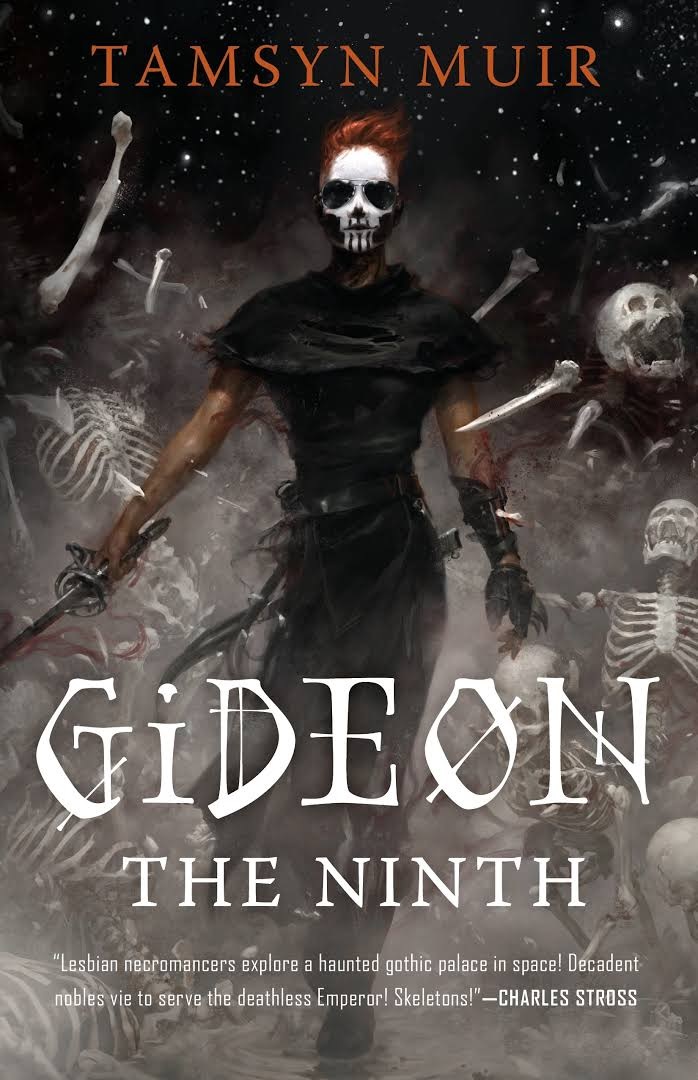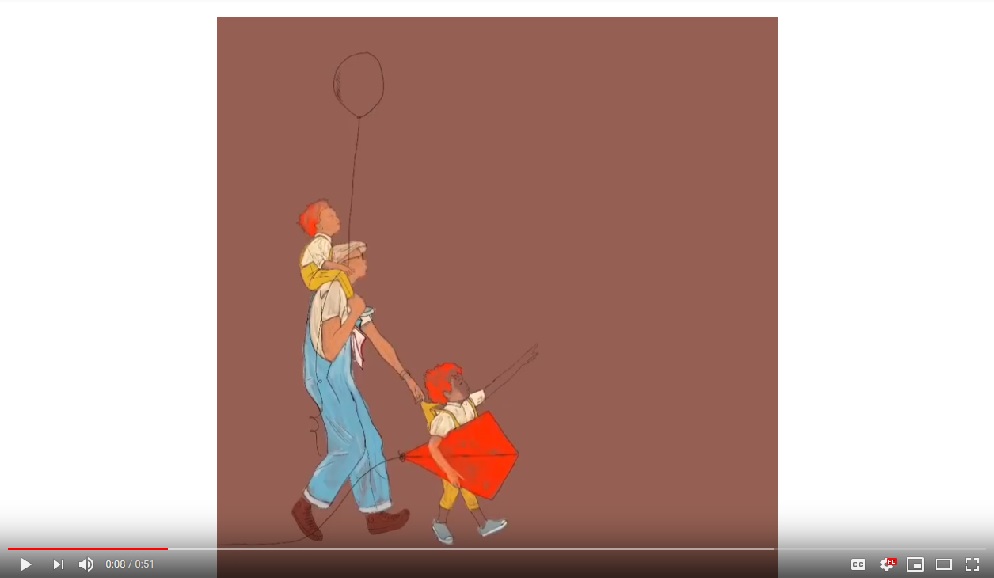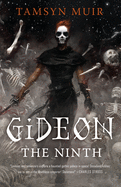 When it comes to epic fantasy, it's difficult to imagine a more purely fun read than Tasmyn Muir's Gideon the Ninth. Muir has received acclaim for her short fiction, and her debut novel is startlingly confident. She plunges the reader head-first into an unapologetically strange, complex and frequently disgusting universe ruled by powerful necromancers.
When it comes to epic fantasy, it's difficult to imagine a more purely fun read than Tasmyn Muir's Gideon the Ninth. Muir has received acclaim for her short fiction, and her debut novel is startlingly confident. She plunges the reader head-first into an unapologetically strange, complex and frequently disgusting universe ruled by powerful necromancers.
Muir positions her protagonist, Gideon Nav, amid foreboding gothic spaces and reanimated skeletons. It would be a stretch to describe Gideon as grounded--her awe-inspiring talent as a swordswoman is on repeated display--but she is perfectly happy to puncture the stuffy, self-serious air of her companions with crude jokes, puns and even a well-timed "that's what she said." She's genuinely funny and an immensely likable character to introduce readers to mysterious, deadly worlds.
The novel's action kicks off when Gideon finally receives a chance to leave her oppressive home planet as a cavalier, a kind of bodyguard. The Emperor has summoned representatives from the nine houses--a necromancer and a cavalier from each--to a huge, decaying palace where the houses will vie against each other to discover ancient necromantic secrets and attempt to become Lyctors, demigod-like members of the Emperor's inner circle. It's complicated. Thankfully, Muir grounds the strangeness in a few familiar conceits. When necromancers and cavaliers start to die in mysterious fashion, the novel begins to unexpectedly resemble a locked-room mystery, or perhaps even a particularly demented slasher movie.
The crux of the novel is the relationship between Gideon and her necromancer Harrowhark Nonagesimus (Gideon the Ninth does not skimp on delightfully odd names). Gideon and Harrowhark have carried on a vicious, sometimes violent feud since they were children, with its roots in a horrible tragedy that is not fully explicated until well into the novel. Despite their antagonism, they have an undeniable emotional connection, and much of the book's most interesting character work lies in deepening and complicating their relationship. Muir is adept at showing how closely love and hate can be entwined, and their evolving dynamic forms a compelling emotional through-line in a book that regularly features enormous monsters magically pieced together from hundreds of bones.
Apart from Gideon and Harrowhark's relationship, Gideon the Ninth is at its most thrilling in its action scenes. Even veteran fantasy readers can expect to be blown away by Muir's sheer creativity, especially in her descriptions of the necromancers at work. The skeletal constructs are a descriptive high point: "It was just simply, suddenly there, like a nightmare--a squatting, vertiginous hulk; a nonsense of bones feathering into long, spidery legs, leaning back on them fearfully and daintily; trailing jellyfish stingers made up of millions and millions of teeth all set into each other like a jigsaw." The climax of the story features a true show-stopper of a fight, its intricate choreography closely interwoven with the book's themes and relationships. Gideon the Ninth is simply one of the best and most original books in recent memory. --Hank Stephenson, bookseller, Flyleaf Books, Chapel Hill, N.C.
Shelf Talker: Gideon the Ninth is a dense, impressively imagined debut about necromancers and swordswomen that wears its heart--and gonzo sense of humor--on its sleeve.






IPC.0204.S3.INDIEPRESSMONTHCONTEST.gif)






 Half Price Books will open a
Half Price Books will open a 
 Plot Twist Bookstore
Plot Twist BookstoreIPC.0211.T4.INDIEPRESSMONTH.gif)


 Posted yesterday on Facebook by
Posted yesterday on Facebook by  The Thing About Bees: A Love Letter
The Thing About Bees: A Love Letter When it comes to epic fantasy, it's difficult to imagine a more purely fun read than Tasmyn Muir's Gideon the Ninth. Muir has received acclaim for her short fiction, and her debut novel is startlingly confident. She plunges the reader head-first into an unapologetically strange, complex and frequently disgusting universe ruled by powerful necromancers.
When it comes to epic fantasy, it's difficult to imagine a more purely fun read than Tasmyn Muir's Gideon the Ninth. Muir has received acclaim for her short fiction, and her debut novel is startlingly confident. She plunges the reader head-first into an unapologetically strange, complex and frequently disgusting universe ruled by powerful necromancers.